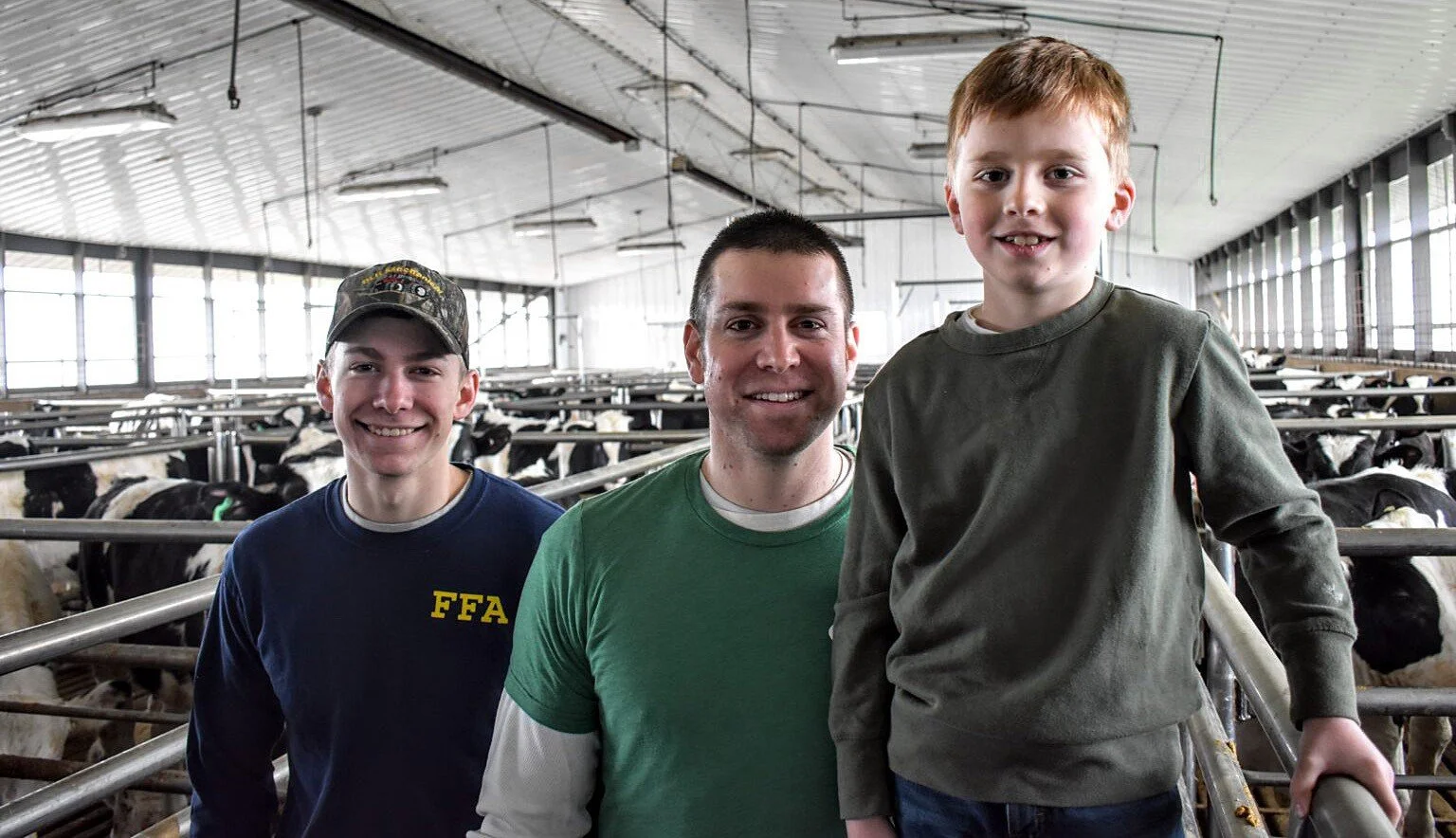Families who raise veal are passionate about caring for the cattle on their farms. They are committed to providing high-quality, delicious products in a way that is ethical for the animals in their care, sustains their family businesses, supports rural communities, and preserves the natural resources and land they call home. Veal farms are primarily located in New York, Pennsylvania, Ohio, Indiana, Michigan and Wisconsin. Farm families each raise about 400 animals per year.
Raising Healthy Animals is Always the Priority
Raising healthy animals is foundational to what farmers do each day. When newborn calves arrive at the farm, they start out in individual pens to protect their health because they are born with essentially no immunity. Within a few weeks, they are grouped in pens with other animals where each one has space to express natural behaviors. The animals are clean and comfortable and are never tethered.
Farmers also work with animal nutritionists to ensure animals receive the nutrition needed to thrive and to be healthy. The cattle receive a milk formula twice a day. They also receive grain, fiber and clean drinking water. Protein, iron and fat are included in the feed and adjusted for the age and size of the animal. Veal cattle are raised for about 6 months to a market weight of around 500 pounds or more. That’s bigger than a pig and older than a turkey.
Veal Quality Assurance Certifies On-Farm Practices
Farmers work closely with veterinarians to help ensure the health and wellbeing of the cattle. In fact, veterinarians certify farmers are following practices required by the Veal Quality Assurance (VQA) program, a national, science-based program for raising healthy cattle based on the Five Domains of Animal Welfare.
For example, veal cattle are never castrated or dehorned, and hormone implants are prohibited in raising veal in the United States. Embraced by farmers and prioritized by processors, VQA includes topics such as animal care and handling, nutrition, employee training, housing and facilities.
The VQA program was technically reviewed and updated in 2024. VQA certification is validated by licensed veterinarians, managed by the Meat Institute, and funded by the Beef Checkoff.

